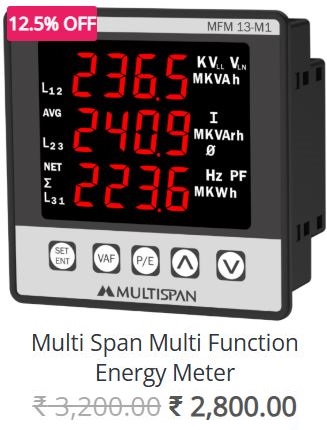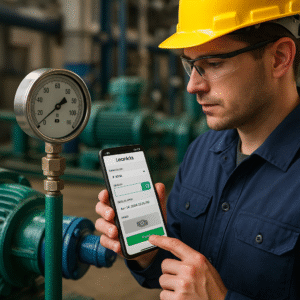- Introduction to Jidoka
- What is Jidoka?
- History and Origins of Jidoka in Lean Manufacturing
- The Core Principles of Jidoka
- Automation with a Human Touch
- Stopping Production to Prevent Defects
- How Jidoka Fits into Lean Manufacturing
- Jidoka vs. Kaizen: A Comparison
- The Role of Jidoka in Continuous Improvement
- Practical Applications of Jidoka in Industries
- Jidoka in the Automotive Industry
- Jidoka in Electronics and Electrical Manufacturing
- Jidoka in Food Processing
- Benefits of Implementing Jidoka
- Improved Product Quality
- Increased Operational Efficiency
- Employee Empowerment and Engagement
- Challenges in Implementing Jidoka
- Resistance to Change
- Initial Investment in Automation Tools
- Real-World Examples of Jidoka Success
- Toyota’s Use of Jidoka
- Jidoka in the 21st Century: Evolving with Technology
- Types of Sensors and Instrumentation Used in Jidoka Implementation
- Sensors for Defect Detection
- Instrumentation for Process Monitoring
- Smart Sensors and IoT Integration
- Conclusion
- Why Jidoka is Essential for Modern Manufacturing Success
1. Introduction to Jidoka
What is Jidoka?
Jidoka, often referred to as “autonomation,” is a key principle of Lean Manufacturing that emphasizes building quality into the process through automation with a human touch. The term originates from Toyota and combines “jidō” (meaning automation) with “kaizen” (continuous improvement). Jidoka enables workers or machines to detect anomalies or defects and stop production to prevent faulty items from moving down the production line.
History and Origins of Jidoka in Lean Manufacturing
Jidoka was first introduced by Sakichi Toyoda, the founder of Toyota, as part of his invention of the automatic loom. This principle later became one of the pillars of the Toyota Production System (TPS), which is the foundation of Lean Manufacturing. Jidoka allowed Toyota to stop the production process when problems occurred, ensuring higher quality and reducing waste.
2. The Core Principles of Jidoka
Automation with a Human Touch
At its core, Jidoka is about creating systems where machines can perform tasks automatically, but they also have the ability to stop and signal human intervention when something goes wrong. This ensures that defective products are not passed through the production line.
Stopping Production to Prevent Defects
Unlike traditional systems that continue running regardless of issues, Jidoka enables operators or machines to stop immediately when a defect is detected. This creates a self-regulating environment where quality is ensured at every step of production.
3. How Jidoka Fits into Lean Manufacturing
Jidoka vs. Kaizen: A Comparison
While Kaizen focuses on small, continuous improvements across the entire system, Jidoka ensures that quality is built into the process at every stage. While Kaizen addresses process efficiency, Jidoka addresses defect prevention and quality assurance.
The Role of Jidoka in Continuous Improvement
Jidoka plays a crucial role in continuous improvement (Kaizen) by allowing for immediate problem detection and response. By stopping the process, identifying the cause of the problem, and fixing it right away, Jidoka ensures that the root causes of defects are addressed, preventing recurrence.
4. Practical Applications of Jidoka in Industries
Jidoka in the Automotive Industry
In automotive manufacturing, Jidoka is widely used to detect defects in parts such as engines, transmissions, or vehicle bodies. For example, Toyota uses Jidoka in its assembly lines where workers are empowered to stop the line if they notice any issues, preventing defects from progressing further in the production process.
Jidoka in Electronics and Electrical Manufacturing
In the electronics industry, Jidoka is used to ensure the accuracy of components like semiconductors or circuit boards. Machines are designed to stop when defects like soldering errors or incorrect placements occur, allowing quick fixes without disrupting the entire manufacturing process.
Jidoka in Food Processing
In food manufacturing, Jidoka can be applied to detect issues such as contamination, incorrect temperature, or expired ingredients. The ability to stop production immediately prevents large batches of defective products from being shipped out, ensuring consumer safety.
5. Benefits of Implementing Jidoka
Improved Product Quality
The ability to stop production at the moment a defect is detected ensures that only high-quality products are passed to the next stage. This minimizes waste and enhances customer satisfaction.
Increased Operational Efficiency
By addressing defects in real-time, Jidoka reduces the need for later corrections, saving time and money. This leads to more streamlined production and fewer interruptions.
Employee Empowerment and Engagement
Jidoka encourages workers to take ownership of the process. It fosters a sense of responsibility as they are empowered to stop production and solve problems, contributing to both their job satisfaction and overall efficiency.
6. Challenges in Implementing Jidoka
Resistance to Change
One of the challenges companies face when implementing Jidoka is resistance from employees or management who may be uncomfortable with the idea of stopping production. Training and buy-in from all levels of the organization are necessary for successful implementation.
Initial Investment in Automation Tools
Although Jidoka can improve efficiency and reduce costs in the long run, the initial investment in automation equipment and training may be a barrier for some companies.
7. Real-World Examples of Jidoka Success
Toyota’s Use of Jidoka
Toyota is the prime example of Jidoka in practice. In their Toyota Production System (TPS), workers are encouraged to stop the production line when problems arise. This practice has been integral to Toyota’s success in creating high-quality, reliable vehicles.
Jidoka in the 21st Century: Evolving with Technology
In modern manufacturing, Jidoka is evolving with advancements in AI and IoT. Smart sensors and automated systems are now used to detect faults in real time, allowing companies to adopt Jidoka principles with greater efficiency and less human intervention.
8. Types of Sensors and Instrumentation Used in Jidoka Implementation
To implement Jidoka effectively, advanced sensors and instrumentation are used to detect defects or anomalies in the production process. These tools play a vital role in automating the detection of issues and halting production to prevent defective products from moving downstream. Here are the main types:
Sensors for Defect Detection
- Proximity Sensors: Used to detect the presence or absence of objects on the production line. These sensors can detect misalignment, missing parts, or errors in positioning.
- Optical Sensors: Cameras or vision systems that are used to detect surface defects, alignment issues, and product specifications. Optical sensors can identify flaws in the appearance of a product, such as cracks, dents, or color variations.
- Pressure Sensors: Commonly used in industries where fluid or gas systems are involved. These sensors detect pressure anomalies that could indicate a leak or malfunction.
- Temperature Sensors: Used in processes where precise temperature control is critical, such as in electronics or food processing. They can alert operators if the temperature is outside acceptable parameters.
Instrumentation for Process Monitoring
- Flow Meters: Used to measure the rate of liquid or gas flow, often used in chemical or manufacturing industries. Any deviation in flow could indicate a malfunction.
- Torque Sensors: In automotive or machinery manufacturing, torque sensors help monitor mechanical processes, ensuring that parts are assembled correctly with the right level of force.
- Vibration Sensors: Vibration monitoring is crucial in machinery maintenance. These sensors can detect irregular vibrations, which may indicate malfunctioning parts or equipment failure.
Smart Sensors and IoT Integration
Modern Jidoka systems are increasingly integrating IoT (Internet of Things) devices and smart sensors. These sensors can communicate data in real-time, allowing for faster problem detection and response. They can automatically alert operators and even initiate corrective actions without human intervention. This level of automation enhances the effectiveness of Jidoka and enables predictive maintenance.
9. Conclusion
Why Jidoka is Essential for Modern Manufacturing Success
Jidoka is more than just a principle of Lean Manufacturing; it is a philosophy that emphasizes quality and efficiency at every level of the production process. By enabling workers and machines to detect defects early and prevent faulty products from reaching customers, Jidoka enhances product quality, reduces waste, and promotes a culture of continuous improvement.
For industries looking to boost productivity, ensure quality, and empower their workforce, adopting Jidoka is a critical step in staying competitive in the modern manufacturing landscape.















